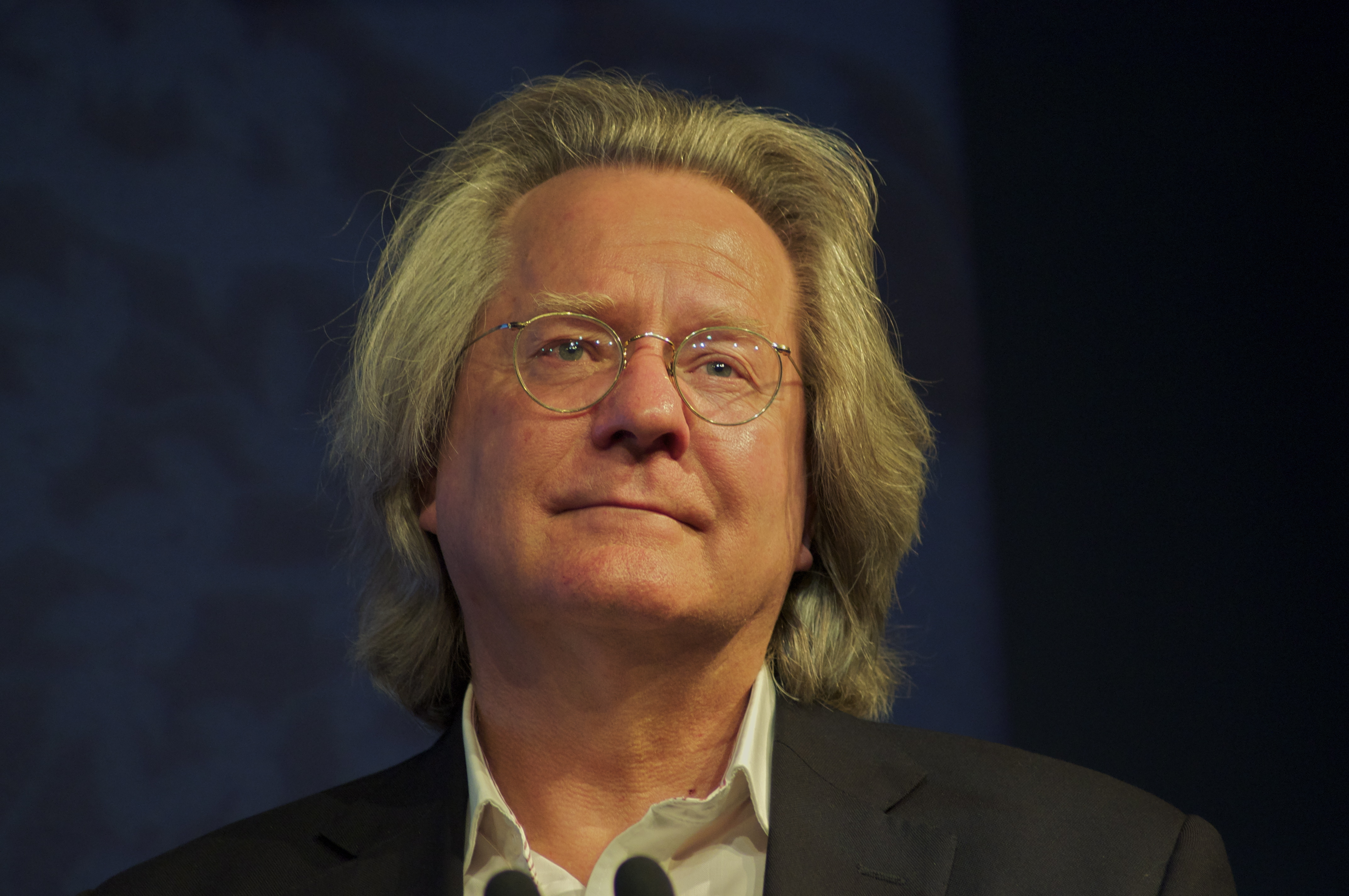Source: Life, Sex, and Ideas: The Good Life Without God (2002), Chapter 47, “Remembrance” (p. 173)
Anthony Grayling: Citations en anglais
“Confusion is the beginning of wisdom.”
Source: Life, Sex, and Ideas: The Good Life Without God (2002), Chapter 60, “Values and Knowledge” (p. 236)
“Ideas are the cogs of history—and too often the barricades that stand in its way.”
Source: Life, Sex, and Ideas: The Good Life Without God (2002), Chapter 58, “Philosophy” (p. 230)
“The one thing that is more dangerous than true ignorance is the illusion of understanding.”
Source: Life, Sex, and Ideas: The Good Life Without God (2002), Chapter 57, “Becoming Philosophical” (p. 226)
Source: Life, Sex, and Ideas: The Good Life Without God (2002), Chapter 30, “Anger” (p. 122)
“On the best view, justice is fairness.”
Source: Life, Sex, and Ideas: The Good Life Without God (2002), Chapter 26, “Protest” (p. 107)
Source: Life, Sex, and Ideas: The Good Life Without God (2002), Chapter 25, “Power” (p. 105)
Source: Life, Sex, and Ideas: The Good Life Without God (2002), Chapter 20, “Intellectuals” (p. 86)
Source: Life, Sex, and Ideas: The Good Life Without God (2002), Chapter 19, “Teachers” (p. 83)
“There are even more general points to be made about “cultural politics.””
Despite appearances in the absurd and often comic debate about “political correctness”, the concept of high culture is not the possession of the political Right, nor does rejection of “post-modernism” and its essence, relativism (rejection of which is required for defence not just of the notion but of the value of high culture), amount to rejection of a progressive political perspective. Political resistance against hegemonies of wealth, class, race and sex in the late-twentieth-century Western world has mistakenly included rejection of the idea that there are cultural and intellectual values which transcend accidental boundaries in human experience, and thereby constitute a possession for the species as a whole. It has been a cheap source of reputation for “theorists” to claim that “reality is the product of discourse”, which means that different discourses constitute different realities, and therefore the truth and value are relative. Those who mistake the politics of resentment for the politics of justice find such views useful, because they equate “high culture” with “culture of the politically and economically dominant class, race or sex”, and therefore take it that attacks on the former are attacks on the latter. One disastrous consequence is that it allows the political Right to present itself as the defender of art, literature and free intellectual speculation, whereas historically yet has it has been the right—from Plato onwards—which has sought to repress the best human endeavours in these respects, on the grounds that art, literature and the unrestricted play of reason threaten to set people free and make them equal.
Rather than attacking the idea of a culture, therefore, reflective progressives (that is or should be a pleonasm) should assert their right to the high cultural terrain, and disentangle themselves from those aspects of movements, particularly in ethnic and sexual politics, whose tendency is not to promote the realisation of a just society but satisfaction of the petty appetite for revenge on groups perceived as historical oppressors.
A better aim for progressives would be to free high culture from the citadel of inaccessibility—mainly financial—into which dominant groups have kidnapped it. They should not commit all their attention to promoting counter-culture or “mass” culture, for the excellent reason that—especially in respect of this latter—much of which passes for “mass” culture is a means of manipulating majorities into quiescence and uncritical acceptance of political and economic conditions favorable to dominant groups. This is notably the case with escapist entertainment and sports.
Source: Life, Sex, and Ideas: The Good Life Without God (2002), Chapter 17, “Cultures” (pp. 74-75)
Source: Life, Sex, and Ideas: The Good Life Without God (2002), Chapter 13, “Sex” (p. 49)
“Prudery expresses itself most forcibly as censorship.”
Source: Life, Sex, and Ideas: The Good Life Without God (2002), Chapter 13, “Sex” (p. 47)
“There is no greater social evil than religion. It is the cancer in the body of humanity.”
Source: Life, Sex, and Ideas: The Good Life Without God (2002), Chapter 9, “Evil” (p. 34)
““Evil” is first and foremost a religious notion. It means whatever a religion dislikes.”
Source: Life, Sex, and Ideas: The Good Life Without God (2002), Chapter 9, “Evil” (p. 33)
“People not only live by symbols, but die by them, as wars of religion and nationalism attest.”
Source: Life, Sex, and Ideas: The Good Life Without God (2002), Chapter 4, “Symbols” (p. 19)
Source: Life, Sex, and Ideas: The Good Life Without God (2002), Chapter 4, “Symbols” (p. 19)
“Symbols have the unfortunate power to acquire the importance of what they symbolise.”
Source: Life, Sex, and Ideas: The Good Life Without God (2002), Chapter 4, “Symbols” (p. 19)
Source: Life, Sex, and Ideas: The Good Life Without God (2002), Chapter 3, “Emancipation and Ethics” (p. 14)
Source: Life, Sex, and Ideas: The Good Life Without God (2002), Chapter 3, “Emancipation and Ethics” (p. 12)
Source: Life, Sex, and Ideas: The Good Life Without God (2002), Chapter 2, “Moral Education” (p. 10)
Source: Life, Sex, and Ideas: The Good Life Without God (2002), Chapter 2, “Moral Education” (p. 7)
Source: Life, Sex, and Ideas: The Good Life Without God (2002), Chapter 1, “Emotion” (p. 3)
Source: Life, Sex, and Ideas: The Good Life Without God (2002), “Introduction” (p. xiii)
“Of all the questions we can ask ourselves the most important is: how is one best to live?”
Source: Life, Sex, and Ideas: The Good Life Without God (2002), “Introduction” (p. xi)
